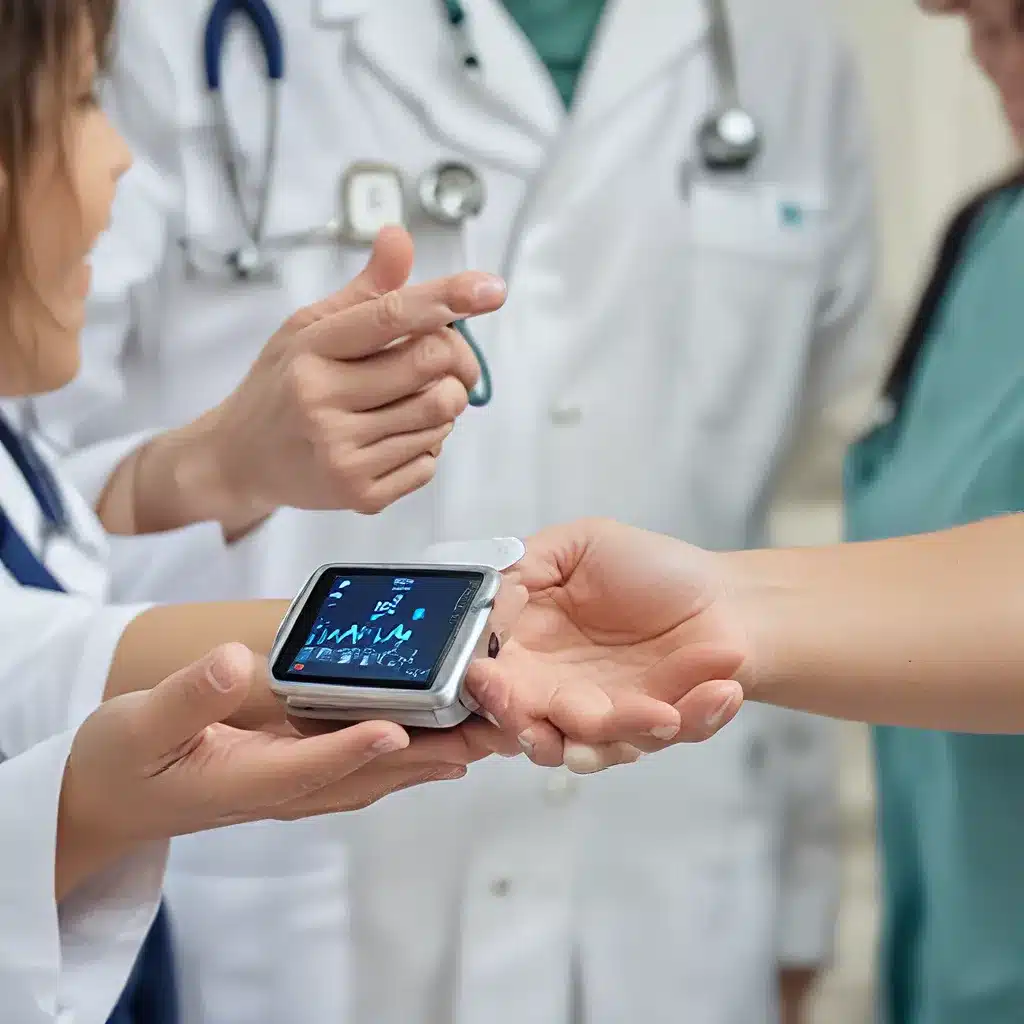
Transforming Healthcare with Sensor Technologies
In the evolving landscape of healthcare, the integration of sensor technologies has emerged as a transformative force. Traditional patient care and treatment approaches often lack the personalized and interactive elements necessary for effective healthcare delivery. This gap highlights the importance of a comprehensive understanding of emerging technologies, including Kinect Sensor technology, and their potential to revolutionize healthcare practices.
Revolutionizing Healthcare Treatment With Sensor Technology addresses this critical need by thoroughly exploring how Kinect Sensor technology can revolutionize patient care and treatment methodologies. By repurposing and customizing Kinect Sensor for healthcare applications, this book showcases how depth-sensing cameras, infrared sensors, and advanced motion tracking can capture and interpret real-time patient movements and interactions.
Empowering Patients through Personalized Therapies
Through detailed case studies and practical examples, healthcare professionals can learn how to integrate Kinect Sensor into various medical settings to gain valuable insights into patients’ physical capabilities, monitor their progress, and create personalized treatment plans. This technology-driven approach to healthcare delivery empowers patients by enabling real-time monitoring, interactive therapies, and customized rehabilitation programs.
By exploring topics such as patient empowerment, personalized therapies, remote monitoring, and surgical precision, readers can better understand how Kinect Sensor can revolutionize healthcare practices. This comprehensive guide for healthcare professionals, hospital administrators, researchers, patients, caregivers, and healthcare technology developers offers a roadmap for transforming patient care and treatment methodologies, ultimately leading to improved patient outcomes and a more efficient healthcare system.
Sensor Networks and IoT in Healthcare
Beyond Kinect Sensor technology, the healthcare industry has witnessed a broader integration of sensor networks and Internet of Things (IoT) solutions, further enhancing patient monitoring and care. These advancements have paved the way for innovative applications in various healthcare domains, including:
-
Remote Patient Monitoring: Wearable sensors and IoT-enabled devices allow for continuous monitoring of patient vital signs, activity levels, and medication adherence, enabling healthcare providers to track and respond to changes in a patient’s condition remotely.
-
Chronic Disease Management: Sensor-based technologies, such as smart inhalers, continuous glucose monitors, and connected scales, empower patients with chronic conditions to better manage their health, leading to improved outcomes and reduced hospitalizations.
-
Assisted Living and Elder Care: Ambient sensor networks in assisted living facilities and smart homes can detect falls, monitor daily activities, and alert caregivers, enabling the elderly to maintain their independence and receive timely assistance.
-
Surgical Precision and Rehabilitation: Advancements in robotic-assisted surgery and sensor-integrated rehabilitation devices have enhanced surgical outcomes and accelerated the recovery process for patients.
Addressing Sensor Network Challenges
While the potential of sensor-based healthcare innovations is evident, the widespread adoption and effective implementation of these technologies face several challenges that must be addressed:
Security and Privacy Concerns
The proliferation of connected IoT devices in healthcare settings has increased the risk of data breaches and cyber threats, which can compromise patient privacy and the integrity of sensitive medical information. Robust security measures, such as encryption, access controls, and secure data transmission protocols, are essential to safeguard patient data and maintain trust in these technologies.
Energy Management and Efficiency
Many sensor-based healthcare applications rely on battery-powered devices, which can pose challenges in terms of power consumption and durability. Advancements in energy-efficient sensor designs, wireless power transmission, and energy harvesting techniques are crucial to ensuring continuous and reliable operation of these systems.
Interoperability and Integration
Seamless integration of sensor-based technologies within existing healthcare infrastructure is essential for their widespread adoption. Standardized protocols, open data formats, and collaborative efforts between device manufacturers, software developers, and healthcare providers are necessary to enable interoperability and facilitate the smooth integration of these innovations into clinical workflows.
Envisioning the Future of Sensor-Based Healthcare
As the healthcare industry continues to embrace the transformative potential of sensor technologies, the future holds even greater possibilities for improving patient outcomes and enhancing the overall efficiency of the healthcare system. Researchers, healthcare professionals, and technology innovators are collaborating to push the boundaries of what is possible, exploring advancements in areas such as:
-
Predictive Analytics: Leveraging machine learning and data analytics on sensor data to identify early warning signs, predict health risks, and enable proactive interventions.
-
Personalized Medicine: Integrating sensor data with genomic information to develop tailored treatment plans and targeted therapies for individual patients.
-
Autonomous Decision-Making: Empowering smart algorithms to assist healthcare providers in making data-driven decisions, optimizing resource allocation, and automating routine tasks.
-
Immersive Rehabilitation: Combining sensor-based technologies with virtual reality and augmented reality to create engaging and interactive rehabilitation experiences for patients.
By addressing the challenges and embracing the transformative potential of sensor-based technologies, the healthcare industry is poised to revolutionize patient monitoring, improve care delivery, and enhance the overall well-being of individuals worldwide. As the future unfolds, the integration of sensor networks and IoT innovations will continue to shape the landscape of healthcare, ushering in a new era of personalized, efficient, and transformative patient care.
Visit sensor-networks.org to explore more insights and advancements in the world of sensor networks and IoT technologies.